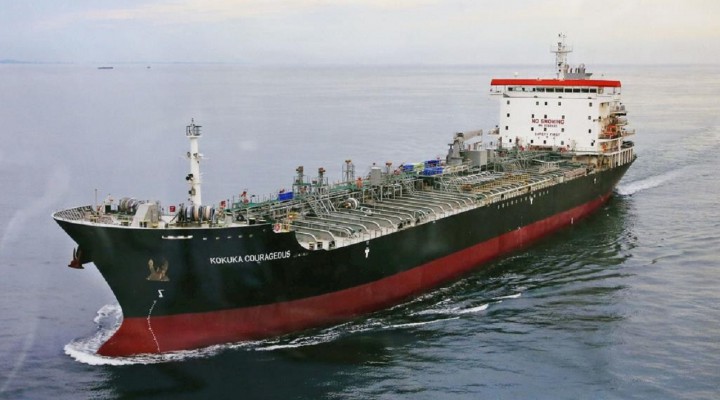Will Lebanon be allowed to import Iranian fuel?

The US says no. But it offers no alternative to alleviate the country’s crippling energy crisis.
The Lebanese are waiting anxiously for the arrival of three promised Iranian oil shipments to help alleviate their country’s crippling fuel crisis — and to see whether the US and Israel will make good on their threats to prevent their arrival on the grounds that they violate American sanctions on both Iran and Lebanon.
Hezbollah leader Hassan Nasrallah turned to his Iranian allies to supply Lebanon with gasoline and diesel after the fuel shortage reached critical proportions, with hospitals and bakeries unable to run their generators and cars and buses unable to fill up.
Iran obliged and loaded three tankers with fuel. The first is due to arrive next weekend.
Hezbollah formed a private company to import and pay for the oil and oversee its equitable distribution to all regions of Lebanon. It hoped this purely commercial set-up would de-politicize the arrangement and deny the US and Israel excuses for opposing it.
On Monday, the Iranian foreign ministry declared that “sending oil to Lebanon is a sovereign decision, and the US is not entitled to prohibit legitimate trade between other countries.” A member of the Iranian parliament’s National Security Committee, Abolfazl Amoui, warned that “any mis-step the Zionists or others commit will face dual retaliation from Iran and Lebanon together.”
According to our sources, a joint operations room has been set up by Hezbollah and the Iranian Revolutionary Guards to oversee the fuel transfers and plan responses to any attempted disruption, including the prospect Israeli of the US or Israeli airstrikes against the tanker as they approach the Lebanese coast.
Two possibilities are being considered. First, for the three tankers to offload their cargoes in succession at Lebanese ports, either Beirut or Sidon. Alternatively, they could head for the Syrian port of Banias — where Iranian tankers have docked previously to help alleviate the fuel crisis caused by the US-led blockade of Syria – for the fuel could be transferred by truck to Lebanon.
Either way, the tankers would have to transit the Suez Canal. The Egyptian authorities have been under intense pressure from the US and Israel to deny them access to the waterway. That would oblige them to take the long route around the Cape of Good Hope, adding 40 days to their journey.
Nasrallah issued a strong warning to Israel and the US in his latest speech but one: ‘The moment the tankers set sail, they are Lebanese territory, which means any attack against them will be considered an attack against Lebanon and will face a proportionate and commensurate response, immediately and without delay.”
The US-Israeli alliance did not intercept the latest Iranian oil tankers arriving at Syrian ports, nor, previously, the four Iranian tankers that shipped refined petroleum products to Venezuela. It seems unlikely it would take military action against the Lebanon-bound tankers, especially after the American debacle in Afghanistan. But it cannot be ruled out that a frustrated and humiliated American administration may feel inclined to lash out.
An attack on the Iranian tankers would pull Hezbollah and Iran openly into the covert shipping war that has been raging in the Gulf, the Red Sea, and the Sea of Oman.
Lebanon’s prime minister-designate, Najib Mikati, no friend of Iran or Hezbollah, issued a scathing response to opponents of the Iranian oil shipments. “Give us a candle. We will not reject these shipments unless we have an alternative”, he said. The sub-text was: ‘If the US doesn’t want Iran to help us, why didn’t it and its Gulf allies do the same during the past six months of this crushing crisis?’
Hezbollah and Nasrallah will be the biggest winners whether the tankers arrive and unload their cargoes or are subject to US/Israeli attacks. Its popularity will grow in Lebanon, either as saviour of the Lebanese people from the fuel crisis or their defender against aggression
Could this be another American defeat in the making, after Iraq, Syria, and most recently Afghanistan?
https://www.raialyoum.com/will-lebanon-be-allowed-to-import-iranian-fuel/
 TheAltWorld
TheAltWorld 
0 thoughts on “Will Lebanon be allowed to import Iranian fuel?”